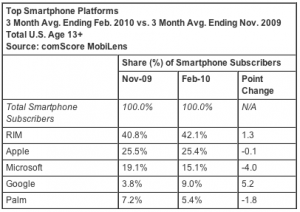What will happen in mobile in 2011? Here’s our predictions
 We’ve pulled out the crystal ball for 2011 and gone out on a limb. Here’s what our team thinks will happen in mobile in the next 12 months or so, in no particular order. Agree? Disagree? Comment and let us know!
We’ve pulled out the crystal ball for 2011 and gone out on a limb. Here’s what our team thinks will happen in mobile in the next 12 months or so, in no particular order. Agree? Disagree? Comment and let us know!
-
Windows Phone 7 will become a growing force in mobile games
yes, we’re going out on a limb here and backing Microsoft to succeed in mobile…finally. We’ve had a good play with Windows Phone 7 and it’s pretty impressive. To be honest, it makes the Android on my Samsung Galaxy S feel a little clunky, while iOS 4 feels like last year’s pair of jeans – if you have it you probably love it, but it just isn’t that new and cool anymore. The overall penetration of Windows Phone 7 might remain low, but it will probably usher in a new level of portable games experience.
-
Nokia will claw back some market share with Meego and Qt
Nokia will be quick to tell you that they are still the marketshare leader in smartphones. I guess it all depends on your definition of a “smartphone”. My opinion is that just because it has Symbian in it does not mean it is a smartphone by 2010 standards. Indeed Nokia have been taking a pasting from all sides and have lost great chunks of market share in advanced countries. But we reckon they are about to arrest the slide in 2011. Just like Motorola turned around their dismal handset division in the USA through the launch of Android devices, so too Nokia will turn things around (predominantly in Europe) with new Meego / Qt devices. Qt looks like a a well planned development platform and Ovi is turning out to be a very powerful app store that has defied the early criticisms. With the introduction of Meego and Qt Nokia will start looking like a handset company with a vision, rather than looking like a washed out prize-fighter clinging to the memory of victories long past.
-
RIM and Samsung’s Bada platforms will fail badly
While Windows Phone 7 and Nokia Qt will pull in developers eager to crack new markets, Samsung’s Bada and RIM’s Blackberry 6 will fall by the wayside. Neither are bad, they just don’t have the cut through in both devices and developer interest compared to iOS, Android and Windows Phone
-
Android will introduce their own in-app billing system
The lack of a killer billing system (both for downlaods, and in-app payments) has really held back Android revenues when compared to iPhone. Companies such as Zong and Boku launched their own in-app payment libraries for Android in June this year, but these still rely on much of the time on Premium SMS, a system that sees the carriers hoover enormous chunks of your revenue. Recently, however, Google purchased Social Gold, a well established billing and virtual currency platform. Expect an announcement in 2011 regarding an Android virtual currency and billing system that will hopefully revolutionise the way developers make revenue from the Android market.
Read All »
Posted by David Kainer on December 6th, 2010 :: Filed under vision and trends
Tags :: 2011, australia, mobile applications, mobile development

